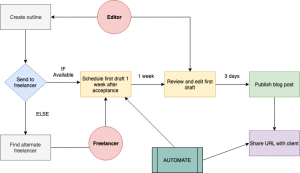
Of all the elements in starting a new business, location is among the most crucial. But it’s more than just finding a good spot. A prospective startup owner may need to look at different cities in order to take advantage of the potential audience, costs and revenue opportunities.
There is plenty of research out there about what the best cities are for small businesses, and different studies will yield different results, based on their metrics. For example, CNBC ranks Austin as the best metro area to start a business. But another study by Wallet Hub puts Austin in 20th place.
Regardless of rankings, it’s wise to spend the time in researching potential locations. Here are some of the important questions to tackle, and a look at several cities that are regarded as good spots for startups.
Get prepared
There is a lot involved in finding the right city and spot for a new business. As Karen E. Spaeder writes in a story for Entrepreneur, the location “might be the single most important thing you do at startup.” So digging into a checklist is a smart idea. Spaeder’s recommendations include comments from Irene Dickey of the University of Dayton’s School of Business. Here are a few tips for “the brick-and-mortar retail world.”
- Look at the demographics: Knowing the market is essential. This includes a deep understanding of the area’s target audience. Other factors come into play as well, as Spaeder explains: “There are, for instance, sophisticated location analysis tools available that include traffic pattern information, demographic and lifestyle data, and competitive analyses.” Dickey describes some of the specifics available with these reports: “For a price, a retailer can ask such questions as, ‘If I’m looking to add a store to a particular market, what’s the optimum level of traffic as it relates to the specific targeted trade area? What is the overall type of traffic? Once consumers are in the store, is there any way to measure the traffic patterns in the store?’”
- Competition: Just as knowing the audience is critical, so is knowing the potential competitors. Some small business owners may scour an area in hopes of finding a lack of competition. As Spaeder’s story explains, that may not be the best way of thinking in all cases. She features behavioral researcher Greg Kahn of the Kahn Research Group in explaining why. “Quite simply, the best place to be is as close to your biggest competitor as you can be,” Kahn says. “Foot traffic is obviously important, but landing the ‘perfect’ customer is far more crucial. By being in close proximity to your competitors, you can benefit from their marketing efforts.”
- Support team: Even if a small business owner believes he or she has found the perfect place, it’s wise to have advisers on board, including a lawyer to assist in the negotiations. And that’s just one piece of the team, as Spaeder writes: “Being aware of all the location costs involved with starting your business will do wonders for your ability to weather any storms that might — and likely will — come your way. Underestimating the costs and the time involved with launching your business — especially when it comes to your location — is one of the most common startup mistakes, and one you can avoid if you plan properly. If you take into account everything from broker, attorney, engineering and architect fees to zoning and planning hearings, you can see that both the costs and the time to startup can vary widely.”
City spotlights
Some parts of the country are known for a certain brand of industry. Silicon Valley in California may be the best example for its status as the premier technology hot spot. But startups can find homes in different kinds of locations. Here’s a sample of five areas that frequently rank in “best cities for startups” lists.
Seattle: The Emerald City comes in at No. 20 on CNBC’s list of top metro areas to start a business. The story by Susan Caminiti notes its population boom and overall growth, along with tech strength in Microsoft and Amazon. “And while that’s good news for small businesses looking for a well-educated, plentiful workforce, it also means prices for nearly everything in Seattle have moved up as well. … Still, the area has become a hotbed for start-ups of every stripe — from gaming and food delivery to health care — and in the last year, they’ve attracted more than $ 1.2 billion in venture funding. Unemployment is a low 4.8 percent.”
Dallas: Coming in at eighth on CNBC’s list, the sprawling Dallas and Fort Worth area gets high marks for “a growing population, decent salaries and reasonable home prices,” along with a low unemployment rate (3.7 percent), and industry including defense, oil and gas and financial services. “Dallas doesn’t have individual income tax or corporate income tax, but it does levy a margins tax on gross receipts for businesses,” Caminiti writes. “That hasn’t stopped venture capital money from flowing into the area. Dallas/Fort Worth area start-ups attracted $ 104.1 million in the first quarter of 2016, four times the last quarter of 2015, according to a MoneyTree report. A huge slice of the money went to local software companies.”
Richmond: Over on the East Coast, Richmond (which CNBC ranked 11th) has several things going for it, including “an educated workforce, low costs, both government agencies and private-sector companies as potential customers, as well as a thriving outdoor lifestyle, great restaurants and cost-of-living advantages.” The city’s location is a benefit, and Caminiti’s story states that 40 percent of the U.S. population is within one day’s drive. “The city is business friendly, with a 6 percent corporate tax rate, and tax credits and abatements for job creation and development in economically distressed areas. Population in the greater Richmond area is 1.3 million and is expected to grow 5 percent by 2020. Unemployment is 3.7 percent, below the national average. The overall cost of living is lower as well.”
Tulsa: A study by Kiplinger praises the Oklahoma city’s affordability, saying its housing costs are 34.5 percent lower than the average for self-employed workers. And more than 12,700 small businesses call Tulsa home. “In a cozy metro area with less than a million people, that concentrated presence means small businesses make a big impact on the local economy,” the story notes. “According to the Tulsa Regional Chamber, small businesses create two-thirds of all the new jobs in the region and post an annual payroll of $ 1.4 billion.”
Omaha: The Kiplinger story makes note of the success achieved by one of Omaha’s most famous residents: “When it comes to business building, what works for Warren Buffett should work for you, too.” Omaha, which also made the magazine’s list of “cheapest cities you’d actually want to live in,” offers “local residents and business owners rock-bottom living costs,” the magazine says. “Business costs are a steal at 5.7 percent below the U.S. average, according to KPMG. They’re particularly favorable for financial services firms, at 15.2 percent below average.”
Business & Finance Articles on Business 2 Community(29)
Report Post



